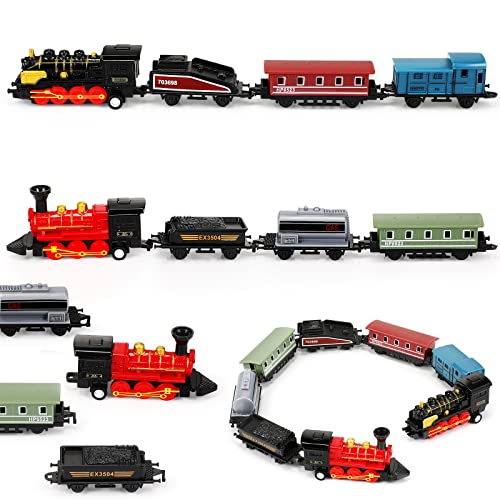NAVYBLUE
Lead Service Attendant
Gołąbki ((cabbage rolls), pierogi, bułka bread, kielbasa, potato soup and vodka. Now that is what I call Amtrak crusine. My wife is a 1,000 generation ******* with a sprinkle of Austrian. I am Austrian/Hungary and Ukranian from my Dad's side. We are both "hunkies". Have you ever heard that term before ? Some web searches say it is a derogatory term, I don't think it is. I am proud to be a "hunky" This is from Wiki so take it for what it is worth.That sounds like a wonderful trip. I grew up in Alpena, and then we moved to Gaylord when my dad got a new job (I was twelve).Boy that was fast. We stayed at an RV park just north of the Mackinac bridge for about a week and that's where I learned about Yoopers. Didn't eat a pastie but did have Lake Michigan perch. Tried the whitefish, but not a fan. Stayed at St Ignace for about a week and then about a week at Ishpeming. Took a ride up to Copper Harbor. Likes the whole area of UP. Went to Whitefish Point and the Great Lakes Shipwreck Museum. Pleasantly surprised to see the bell from the Edmund Fitzgerald as I am a Gordon Lightfoot fan and especially the song. Went south as far as Gaylord, Alpena and Traverse City
Dad worked (2) years for Chrysler in Hammtramick and then we moved back to PA.
NAVYBLUE
I have a lot of relatives in and around Hamtramck. As you can imagine, my family is Polish.
The "Hunkies" are a composite Polish, Hungarian (Magyar), Rusyn, Slovak ethnic group which primarily inhabits western Pennsylvania and Upstate New York (Binghamton) and speaks English.[1] The immigrants came en masse prior the turn of the century (starting around 1880) searching opportunity and religious freedom. The Hunkies image was a departure from Hungarian prestige that peaked around Lajos Kossuth's visit in 1851-1852, aka Triumphal Tour.[2]
The term Hunky or "bohunk" can be applied to various Slavic and Hungarian immigrants who moved to America from the Austro-Hungarian Empire. Many of these immigrants fled religious persecution and loss of personal freedoms in their native land. Deriving from a rich culture, the people are entrenched in music, food and family. Hard work and traditions of family are considered important. Traditional food of the hunky culture include: fried cabbage, halušky / galuska, stuffed cabbage or 'pigs in a blanket' (halubki/gołąbki), kalacs and pierogi.
“ The overwhelming majority of these economic immigrants (initially 85%, later 65%) consisted of young working age men. Originally they planned to spend only a few years in America, and then return to Hungary with enough capital to transform themselves into independent farmers or self-employed artisans. This was precisely the reason why, instead of moving into agriculture in line with their traditions, they went to work in the coal mines and steel mills. Only in heavy industry did they have a chance to collect enough money to be able to fulfill their goals back in the Old Country.[3] ”
Hunkies settled in highly industrial areas: they worked in steel mills in western Pennsylvania; in the coal mines of West Virginia and Scranton, Pennsylvania; and in the shoe factories, leather tanneries, and rubber mills in the area around Binghamton, New York. Northeastern Ohio has a vibrant hunky culture, especially the former steel towns of Cleveland and Youngstown, Ohio. Cleveland, Parma and Sandusky were also heavily settled by ethnic Hungarians arriving after the turn of the century; the same applies to the town of New Brunswick, New Jersey.
The use of the term Hunky as a disparaging reference to a person, especially a laborer, from East-Central Europe, is falling into disuse.[4] It primarily exists in the specific regions where the families remain.
NAVYBLUE























































